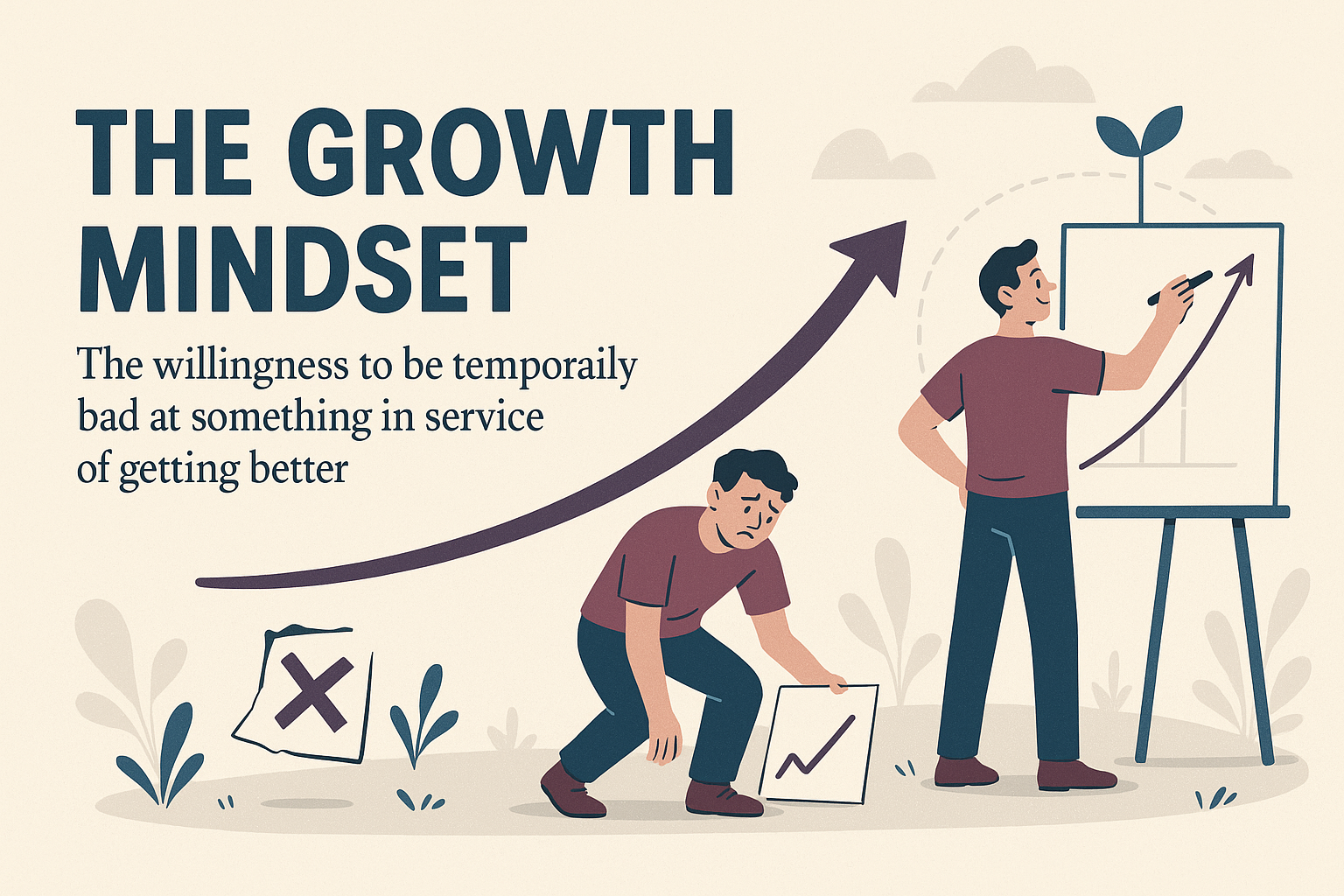June 6, 2025
The Architecture of Inaction: How Perfectionism Kills Creativity
 The difference between a growth mindset and a fixed mindset
The difference between a growth mindset and a fixed mindset
The paradox hit me while staring at my empty blog: The very drive to create something meaningful had prevented me from creating anything at all.
I remember when creativity used to be pure play—exploring ideas for the joy of discovery, building things just to see if they'd work. Somewhere along the way, creativity stopped being play and became performance.
The Perfectionist's Trap That Kills Creation
I call this recursive loop that has kept me frozen for months "The Perfectionist's Trap":
- "I must create something valuable"
- "But is this valuable enough?"
- Analysis paralysis sets in
- No action taken
- Return to start
Unlike creative blocks that stem from fear of criticism, this one comes from fear of insufficient value. The irony stings: my desire to contribute something meaningful has contributed exactly nothing.
Many of us are wired to construct elaborate frameworks in our minds before sharing anything with the world. This internal processing can serve us well professionally, but it becomes a prison for creative work.
Why I Could Grow Professionally But Not Creatively
Here's what puzzles me about this pattern. In professional settings, I've successfully embraced what psychologist Carol Dweck calls a "growth mindset"—the belief that abilities can be developed through dedication and effort rather than being fixed traits.
I've navigated career transitions, learned new skills, and became comfortable being a beginner in professional contexts. Like many people, I've had to pivot when initial plans didn't work out, and I learned to see setbacks as learning opportunities rather than permanent failures.
Yet when it comes to creative work, I demand immediate mastery:
- In my professional life: comfortable being a learner
- In creative work: demand perfection from draft one
- The difference? One happens in private; the other feels exposed
The Moment Everything Changed
The breakthrough came when I realized something simple: my initial pieces don't need to change anyone's life. They just need to help clarify my own thinking.
Paradoxically, writing that helps me understand myself often resonates more authentically with others than writing explicitly designed to benefit them.
What I'm discovering is that showing up is the essential first step. It's not about being perfect—some pieces will resonate, others won't, but the process itself creates value.
How I'm Breaking Free (And You Can Too)
The growth mindset I embraced in my career—the willingness to be temporarily bad at something in service of getting better—applies to creative work too.
The vulnerability isn't in sharing imperfect work. The vulnerability was in sharing nothing at all.
If you're stuck in your own perfectionist trap, here's what's working for me:
- Reframe the goal - Focus on clarifying your thinking, not changing the world
- Embrace the beginner's mind - Apply the same patience you'd show a career transition
- Start with play - Remember why you loved creating before it became performance
- Ship the imperfect - Done is better than perfect sitting in drafts
This piece you're reading? It's my first step. It's imperfect, incomplete, and exactly as it should be.
What's Your Perfectionist Trap?
I'd love to hear about the creative projects you've abandoned in pursuit of perfect value. What would you create if you knew it was okay to be a beginner?